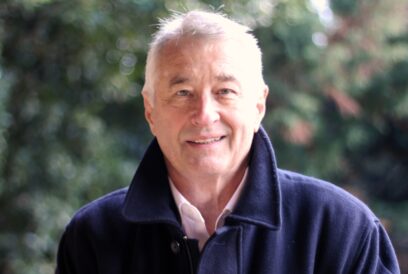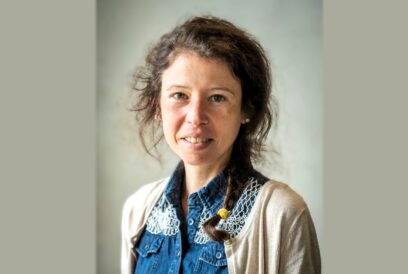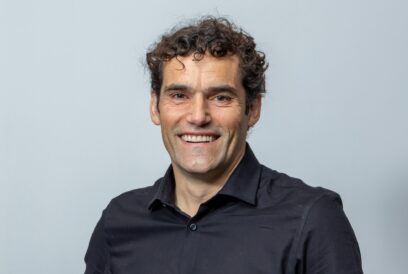

By giving everyone a voice on the net we assumed that people would use this new power wisely, but we greatly underestimated our potential for hate and manipulation, writes e-learning specialist, Alastair Creelman. The text is a column written for issue 3/2018 on Adult Education and Media Literacy.
The future isn’t as good as it used to be.
A few years ago, I was very optimistic about the enormous opportunities that digital technology could offer, especially in the field of education.
Social media and other digital platforms offered endless possibilities to collaborate on a global scale, form learning communities, share ideas and experience and open up the classroom to the world. Teachers could create open educational resources and share them in a responsible manner using Creative Commons licenses and a variety of platforms.
Massive Open Online Courses enabled universities and colleges to offer free courses to the world and open courseware could be reused and repurposed by schools and other educational institutions. The smart, cool EdTech start-ups dazzled us with seemingly free and open tools that gave teachers and students enormous flexibility and creative potential.
The wisdom of the crowd is now complemented by the rage of the mob.
The media landscape was also diversifying allowing new voices to be heard and offering the hope of greater understanding and tolerance. The Arab Spring was an example of this where social media were seen to play a major role in the struggle to reform society. The future seemed to favour openness, freedom and collaboration and technology was driving this trend.
TODAY THINGS ARE MUCH MORE COMPLEX. The media landscape has turned sour, even if the potential for good is still there. The wisdom of the crowd is now complemented by the rage of the mob.
By giving everyone a voice on the net we assumed that people would use this new power wisely, but we greatly underestimated our potential for hate and manipulation.
Many of us feel betrayed by companies we had so enthusiastically embraced. Who on earth can you trust?
Many of the platforms we have been so enthusiastically using have been selling our data to anyone who is willing to pay for it and in some cases, our personal data has fallen into the wrong hands.
Words such as free, open and personalised have proved to be rather slippery concepts, often with hidden dangers. Many of us feel betrayed by companies we had so enthusiastically embraced. Who on earth can you trust?
The complexity of the media landscape today places high demands on our own digital and media literacies and the role of adult education, and indeed the entire education sector, is crucial if we are going to raise awareness of both the dangers and the opportunities of the digital world that is forming around us.
Teachers need to work with other professions such as journalists, publishers, media specialists, librarians, researchers and civil servants.
However, the task of enabling citizens to make sense of and navigate today’s ever-changing media landscape (i.e. media and information literacy) depends on a major coordinated investment in training and research involving many sectors of society. For this to happen we need coordination and incentives from governmental level, something that may be difficult in countries.
There are excellent guidelines and initiatives from the EU Commission aimed at raising awareness of media literacy issues and digital literacies in general but these need to be implemented at national level and downwards. Teachers need to work with other professions such as journalists, publishers, media specialists, librarians, researchers and civil servants to offer a wide range of training resources and arrange workshops, meetings and lectures focusing on media literacy.
In many countries groups of journalists and researchers work together to offer fact-checking services, offering analyses of the truth behind viral news items and urban legends that are so rapidly spread in social media. An example of this is the Swedish service Viralgranskaren that has both a website and a popular Facebook channel presenting the facts behind the week’s viral news and scams.
In the past year, the concept of platform literacy has been discussed. This concerns learning to make informed choices about the platforms we use and be able to adjust the settings to minimise potential dangers such as allowing our data to be freely shared with third parties etc.
If you are aware of what membership of, for example, Facebook entails and have made informed choices in your personal settings then you can use that platform more responsibly. The same applies when we sign up for Google, Microsoft, Apple, Amazon, Spotify and all the other platforms that have become such an integral part of our daily lives. We need to be better at questioning why services are free, what open actually means and what personalisation can lead to in terms of how it can lead me into a filter bubble.
IN MY OWN PRACTICE, I have made some radical changes in the past year. I no longer search with Google, preferring Duckduckgo, a search engine that doesn’t track you or send you targeted ads. I have switched browser to one called Vivaldi and am satisfied so far and I have gone through all the privacy settings in Facebook and deleted all associated apps.
I still use Facebook and enjoy networking with all my valuable contacts, but I have also taken measures to at least limit the power they have over my data. I have chosen to continue using the platform but feel I do so with a greater awareness of the consequences and my responsibility for protecting my own information.
Media literacy and source criticism need to be part of every curriculum, libraries and community centres can offer workshops and information activities and we need national resource sites with self-help material, lesson plans, recorded lectures, games etc for teachers, learners, librarians and others to use and adapt in their work.
Let’s work together to help everyone enjoy the benefits of online networking in a responsible and enlightened manner.
Author







